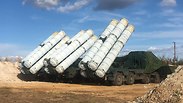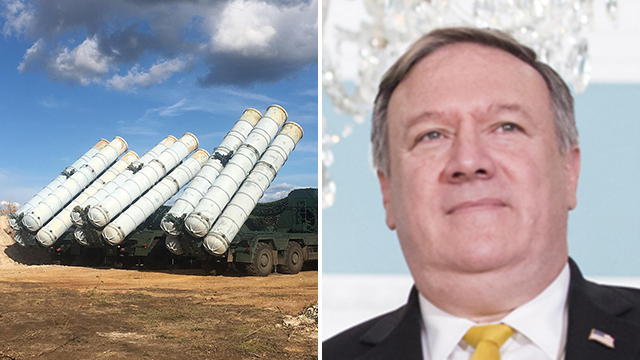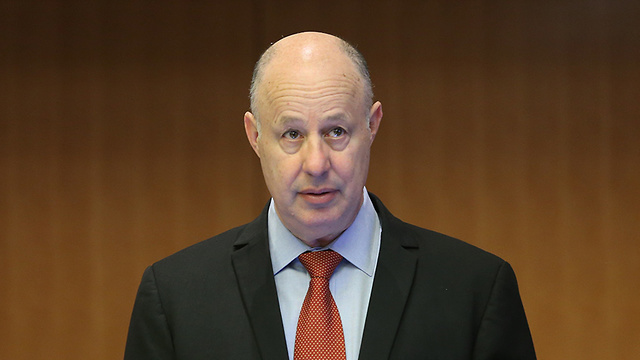
S-300 batteries
צילום: EAP
Pompeo: Russian delivery of S-300 to Syria a 'serious escalation'
While the US secretary of state expresses concern over Moscow's move to arm Damascus with advanced anti-aircraft system, Minister Hanegbi says S-300 is no match for Israel's F-35 stealth fighter jets; 'These batteries are not even able to detect them,' he says.
US Secretary of State Mike Pompeo said Wednesday the Russian delivery of the S-300 air defense system to Syria was "a serious escalation."
Moscow said on Tuesday that it had delivered the S-300, a decision it took after accusing Israel of indirect responsibility for the downing of a Russian spy plane by Syrian forces as they fired on attacking Israeli jets last month.
Damascus and its big-power backer describe the advanced addition to Syria's arsenal as a major deterrent. Israel and Washington have both voiced misgivings about the S-300 handover.
But Israel's Regional Cooperation Minister Tzachi Hanegbi played down the Russian move, telling Army Radio said Syria having the S-300 system would not limit Israel's freedom of operations on its northern border.
"The operational abilities of the air force are such that those (S-300) batteries really do not constrain the air force's abilities to act," he said.
Referring to F-35 Joint Strike Fighters that Israel began receiving from the United States over a year ago, Hanegbi said: "You know that we have stealth fighters, the best planes in the world. These batteries are not even able to detect them."
Reuters reported in 2015 that Israel had trained against a Russian-supplied S-300 system in Greece.
Israel's air raids on Syria have been carried out as part of the effort to foil deployments and arms transfers by Iran or Lebanon's Hezbollah guerrillas, allies of Damascus.
Hanegbi said that Russia had previously stationed its own S-300 in Syria, so the system's capabilities had long been factored into Israeli planning. Syria's military would require "a few months" to get its S-300 operational, he said.
"We have clarified to the Syrians more than once that we will not step back from our commitment to prevent Iran's entrenchment in Syria," Hanegbi said, adding a veiled threat to take action against the S-300 on the ground: "We were already forced, a few months ago, to destroy Syrian missile batteries, and I hope they won't challenge us in the future."
Israel said on Sept. 4 it had carried out more than 200 air strikes in Syria in the previous two years—an average rate of twice a week—with Russia largely turning a blind eye. There have been no reports of such missions since the Russian plane's downing on Sept. 17, however.
Any such hiatus was a "tactical situation over a week or two" rather than a strategic reassessment by Israel, Hanegbi said.
Asked if Iran and its allies had used the period to step up their activities in Syria, he said he had seen "no basis for that" in Israeli intelligence assessments.












